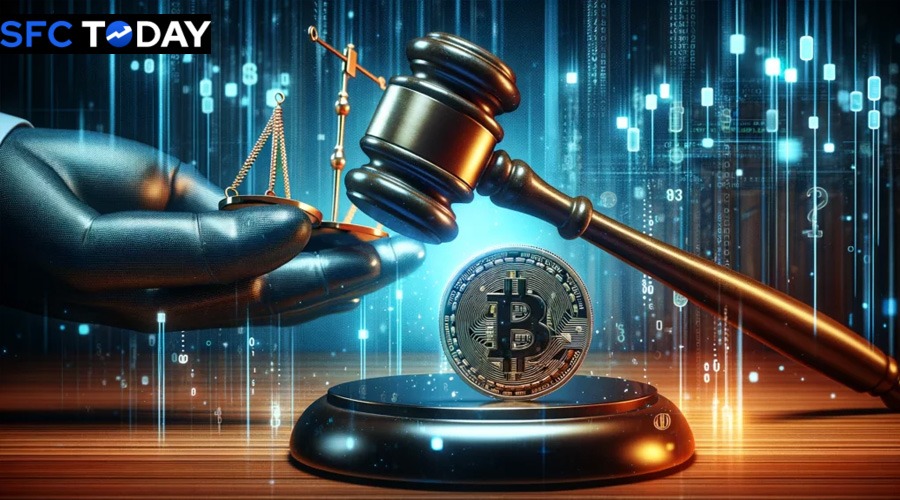Explore the implications of this high-profile case, the $40 billion Terra collapse, and more
The extradition of Do Kwon, co-founder of Terraform Labs, to the United States marks a pivotal moment in the cryptocurrency industry. Kwon’s involvement in the collapse of TerraUSD and Luna tokens, which led to a $40 billion loss for investors, has drawn significant attention from regulators and market participants alike. This development underscores the increasing scrutiny on digital assets and the individuals behind them, highlighting the need for robust regulatory frameworks to protect investors and maintain market integrity.
Background on Do Kwon and Terraform Labs
Do Kwon, a South Korean national, co-founded Terraform Labs, the company behind the algorithmic stablecoin TerraUSD (UST) and its sister token, Luna. These digital assets were designed to maintain price stability through a complex algorithmic relationship. However, in May 2022, both tokens experienced a catastrophic collapse, erasing approximately $40 billion in market value and causing widespread financial harm to investors worldwide.
Extradition Proceedings and Legal Charges
Following the collapse, Kwon became a fugitive, evading authorities until his arrest in Montenegro in March 2023 while attempting to travel with falsified documents. Both the United States and South Korea sought his extradition. In December 2024, Montenegro’s Ministry of Justice approved the U.S. extradition request, and Kwon was transferred to U.S. custody on December 31, 2024. He appeared in a Manhattan federal court to face charges including wire fraud, commodities fraud, securities fraud, and conspiracy to defraud and engage in market manipulation.
Implications for Cryptocurrency Regulation
Kwon’s extradition and the legal actions against him have significant implications for the cryptocurrency industry:
Enhanced Regulatory Scrutiny: The case exemplifies the willingness of international authorities to pursue and prosecute individuals involved in fraudulent activities within the crypto space. This sets a precedent for increased regulatory oversight and enforcement actions against malpractices in the industry.
Global Cooperation: The coordinated efforts between Montenegro, the United States, and South Korea in Kwon’s extradition highlight the growing international collaboration in addressing cross-border financial crimes associated with cryptocurrencies. Such cooperation is crucial for establishing a unified regulatory approach to effectively oversee the global crypto market.
Investor Protection: The legal proceedings underscore the importance of safeguarding investors from fraudulent schemes and the necessity for transparent and accountable operations within the crypto industry. Regulators are likely to implement stricter measures to ensure that investors are adequately protected from potential risks associated with digital assets.
Market Integrity: The collapse of TerraUSD and Luna, coupled with the subsequent legal actions, have prompted discussions on the need for regulatory frameworks that ensure market integrity and prevent systemic risks posed by algorithmic stablecoins and other complex financial instruments within the crypto ecosystem.
Recent Developments
In addition to Kwon’s extradition, Terraform Labs has agreed to a $4.47 billion settlement with the U.S. Securities and Exchange Commission (SEC) over charges of defrauding investors. This settlement includes $4.05 billion in disgorgement and a $420 million fine. Given Terraform’s bankruptcy filing in January 2024, much of this amount will be treated as an unsecured claim in their Chapter 11 case. Kwon is also personally liable for an $80 million fine and is banned from engaging in crypto transactions.
Broader Industry Impact
The ramifications of Kwon’s case extend beyond Terraform Labs. For instance, Jump Trading Group agreed to pay $123 million to settle an SEC investigation related to its involvement with the failed TerraUSD stablecoin and its creator, Do Kwon. The trading unit Tai Mo Shan was found to have misled investors about TerraUSD’s stability, contributing to significant losses when the coin collapsed in 2022.
Conclusion
The extradition of Do Kwon to the United States and the subsequent legal actions represent a watershed moment in cryptocurrency regulation. These developments signal a more assertive stance by regulators globally to enforce compliance and hold individuals accountable for fraudulent activities within the crypto industry. As the market continues to evolve, such actions are likely to lead to the implementation of more comprehensive regulatory frameworks aimed at ensuring transparency, protecting investors, and maintaining the integrity of the financial system.







